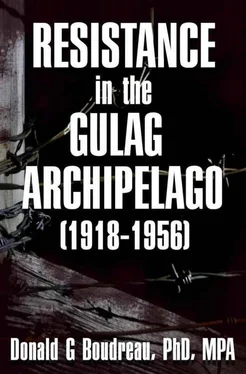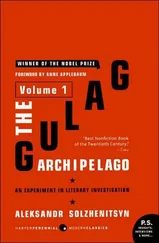The people became more educated and cultured, Leninist ideas penetrated everywhere. Proletarian influences reached the petty bourgeois masses; the authority of the Communist Party increased markedly. But at the same time the masses were educated in another, unproleterian spirit of blind subjection to the authority of the chiefs, above all Stalin. [41] Cf. Medvedev, at 537.
Conclusively, the Soviet Union is not so much to be reproached for taking authoritarian measures considering the mitigating circumstances. Almost all systems of law contain martial law for such occurrences. Yet, Stalinism was an extreme phenomenon in that despite its rhetoric to the contrary, martial law went undistinguished. This is unforgiving and invites reproachment. And, in The Mass Psychology Of Fascism, Wilhelm Reich (1970) the Austrian-American psychiatrist and psychoanalyst, eloquently brings the relevant issues to light. He finally concludes that
[T]he responsibility for this failure falls heavily on the working masses of people themselves. Unless they learn to rid themselves of authoritarian forms of government. No one can help them; they and they alone are responsible. This and this alone is true and affords hope. The Soviet government cannot be reproached for reverting to authoritarian and moralistic methods of control; it had no other choice if it did not want to endanger everything. It is to be reproached for neglecting self-government, for blocking its future development, and for not creating its preconditions. The Soviet government is to be reproached for forgetting that the state has to wither away. IT is to be reproached for neglecting to make the failure of self-government and self-regulation of the masses the point of departure for new and greater efforts; for trying to make the world believe that, despite everything, this self-regulation was developing and that “complete socialism” and “genuine democracy” prevailed. [42] Wilhelm Reich, The Mass Psychology of Fascism , pp. 299-300.
AUTHOR’S NOTE
IN RE THE TRADITION OF FREEDOM VS. TRADITION OF SOCIETY
The basic principle of a free society is that no single individual can come to know absolute truth. Thus, it is believed that the interchange of different ideas will serve to facilitate the maximum attainment of relative, approximate truth. This position is untenable to the Soviet Union with its long tradition of associating freedom with total chaos. The operative ideals of our root orientation in the West are diametrically opposed to those made manifest throughout Stalinism.
The evidence at hand dictates a failure to falsify the hypothesis. In the Gulag archipelago, there existed no channels representing the equities and grievances of the population at large, through which injured parties would have been permitted to seek recourse without threat of governmental retaliation. There existed neither any governmental implementation nor public support of a criminal justice system acting in the interests of Russian citizens. Thus, dissent was blatantly suffocated by Joseph Stalin’s draconic measures.
Dissent was weakened, in that when it did sporadically arise, there was tragically no one in a governmental position who was receptive and willing to act. Let us recognize the genius of our Founding Fathers in the United States, who by adopting the separation of powers — rejected Draconian dictatorships that would serve to jettison the free marketplace of goods, services, and ideas.
Hunger strikes proved ineffective as the government went about implementing coercive counteracting tactics (i.e., patience and deception on behalf of the prison administration, coercive feeding, directives telling the prisoners to go ahead and starve themselves to death-government assuming no responsibility therefore). As D.M. Sturley (1964) (16) observed, many of the peasantry class did resist Forced Collectivization. Rather than hand over their livestock to the state, peasants slaughtered and ate them and also refused to till the fields. Unfortunately, we are discussing a predominantly peasant culture faced with mass illiteracy and famine on an extensive scale. Peasants were ultimately forced into forced labor at the point of the machine-gun.
I concur wholeheartedly with Solzhenitsyn’s conviction that war crime criminals of the Stalinist era must be brought to justice through the Soviet criminal justice system. As he illustrates in The Gulag Archipelago, by 1966, eighty-six thousand Nazi criminals have been convicted on such charges in West Germany (p. 175). In the past quarter century, not one of Stalin’s accomplices has been brought to trial. These statistics, do not at all balance, with Nikita Khrushchev’s famous secret 1956 denunciation of Stalin. Unless the Soviet system recognizes and facilitates legal action with reference to these crimes against humanity, the process of extirpating the Stalinist ethos from the soil of “Holy Russia” will be drastically prolonged.
The right to life as a basic tenet of liberalism is desirable to all. Individual fulfillment is inextricably interwoven with the freedom of expression. The bell of the Gulag will continue tolling throughout the course of history.
Donald G. Boudreau
Montclair State College
Upper Montclair, New Jersey
Fall 1974
BOOKS
Amalrik, Andrei. Will the Soviet Union Survive Until 1984? New York: Harper and Row Publishers, 1970.
Camus, Albert. An Essay on Man in Revolt . New York: Alfred A. Knopf Pub., 1969.
Camus, Albert. Resistance, Rebellion and Death . Translated from the French and with an introduction by Justin O’Brien. New York: Alfred A. Knopf Pub., 1961.
Gasset, Jose Ortega y. The Revolt of the Masses . New York: W.W. Norton & Company, Inc., 1957.
Goldston, Robert. The Russian Revolution . Greenwich, CT: Fawcett Publications, Inc., 1966.
Grazzini, Giovanni. Solzhenitsyn: a biography . New York: Dell Publishing Co., Inc., 1974.
Hook, Sidney. Marx and the Marxists: The Ambiguous Legacy . New York: Van Nostrand Reinhold Co., 1965.
Mayer, Milton. They Thought They Were Free: The Germans 1933-45 . Chicago: The University of Chicago, 1969.
Medvedev, Roy A. Let History Judge: The Origins and Consequences of Stalinism . New York: Alfred A. Knopf, 1972.
Reich, Wilhelm. The Mass Psychology of Fascism . New York: Farrar, Straus & Giroux Publishers, 1970.
Solzhenitsyn, Alexander I. The Gulag Archipelago: 1918-1956: An Experiment in Literary Investigation. Parts I-II . New York: Harper & Row Publishers, 1973.
Solzhenitsyn, Alexander I. Cancer Ward . New York: Bantam Books, 1972.
Solzhenitsyn, Alexander. The First Circle . New York: Bantam Books, 1972.
Solzhenitsyn, Alexander. Stories and Prose Poems . Translated by Michael Glenny. New York: Bantam Books, 1972.
Solzhenitsyn, Alexander. Nobel Lecture . New York: Farrar, Straus and Giroux, 1972.
Sturley, D.M. A Short History of Russia . New York: Harper & row Publishers, 1964.
Toynbee, Arnold J. Civilization on Trial . New York: Oxford University Press, 1947.
PERIODICALS
The New Republic — A Journal of Politics and the Arts
The New York Times
Time Magazine
Esquire Magazine
SUPPLEMENTARY BIBLIOGRAPHY: ADDITIONAL, MORE CONTEMPORARY READINGS, ISSUED SUBSEQUENT TO THE 1974 WRITING OF THE INSTANT SUBJECT PAPER
Applebaum, Anne. “Stronger Than The Gulag,” [Solzhenitsyn’s writings], The Washington Post, August 5, 2008, p. A19, col. 3.
Читать дальше












